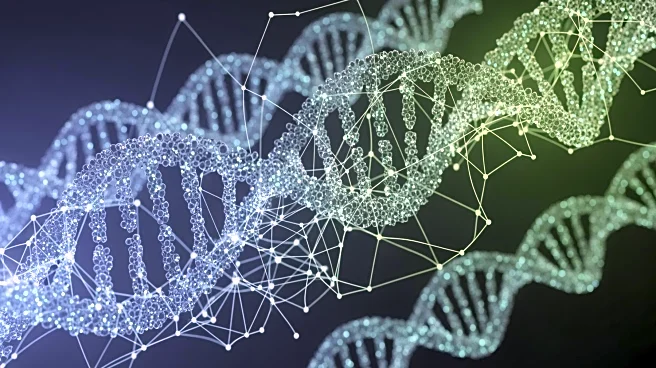What's Happening?
Recent research has focused on identifying genetic factors contributing to treatment-resistant brain cancer, particularly glioblastoma multiforme (GBM). Various genetic screening methodologies, including
CRISPR and RNAi, have pinpointed genes involved in DNA repair, cell cycle control, and immunomodulation. These genes, such as BRCA2, MRE11A, and LIG4, play roles in DNA damage response and influence cancer cell resistance to therapies like radiotherapy and chemotherapy. The study highlights the immunomodulatory impact of these genes on natural killer (NK) cells, which are crucial for immune responses against cancer cells. The findings suggest that alterations in these genes can affect NK cell function, potentially leading to therapy resistance.
Why It's Important?
Understanding the genetic basis of therapy resistance in brain cancer is crucial for developing more effective treatments. The identified genes could serve as potential targets for new therapeutic strategies aimed at overcoming resistance. By modulating the immune system, particularly NK cell activity, these strategies could enhance the efficacy of existing treatments. This research could lead to personalized medicine approaches, tailoring treatments based on individual genetic profiles to improve outcomes for patients with GBM. The study also underscores the importance of integrating genetic screening in cancer research to identify novel targets for drug development.
What's Next?
Future research may focus on developing drugs that target the identified genes to enhance the effectiveness of cancer therapies. Clinical trials could be designed to test the efficacy of these targeted treatments in overcoming therapy resistance. Additionally, further studies are needed to explore the interaction between these genes and the immune system, particularly NK cells, to develop immunotherapy approaches. Collaboration between geneticists, oncologists, and immunologists will be essential to translate these findings into clinical practice.
Beyond the Headlines
The ethical implications of genetic screening in cancer treatment should be considered, particularly regarding patient consent and data privacy. The potential for personalized medicine raises questions about accessibility and cost, which could impact healthcare equity. Long-term, this research could shift the paradigm in cancer treatment, emphasizing the role of genetics in therapy design and implementation.











